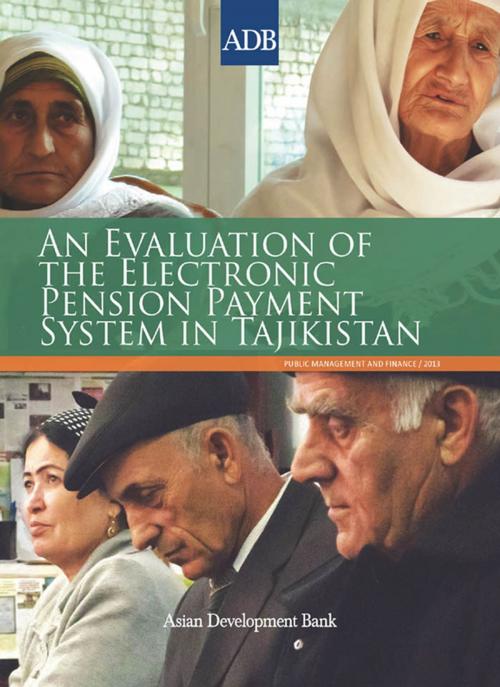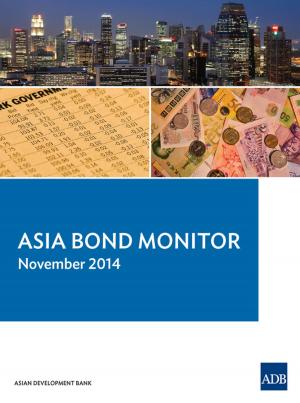An Evaluation of the Electronic Pension Payment System in Tajikistan
Business & Finance, Economics, Sustainable Development, Economic Development| Author: | Asian Development Bank | ISBN: | 9789292542351 |
| Publisher: | Asian Development Bank | Publication: | August 1, 2013 |
| Imprint: | Asian Development Bank | Language: | English |
| Author: | Asian Development Bank |
| ISBN: | 9789292542351 |
| Publisher: | Asian Development Bank |
| Publication: | August 1, 2013 |
| Imprint: | Asian Development Bank |
| Language: | English |
In 2009, Tajikistan became one of the first countries in Central Asia to implement electronic payments to pensioners. As of October 2012, the electronic system had been implemented in 15 of 68 districts, covering 192,000 of Tajikistan’s approximately 596,000 pensioners. This study shows that this change has had positive effects, especially on perceived convenience and wait times. However, not all pensioners have benefitted equally from the change in payment system. In particular, rural pensioners have had challenges and experienced increased wait and travel times. The evaluation points to a number of areas where improvements can lead to enhanced service delivery for the pensioners and increased cost efficiency.
In 2009, Tajikistan became one of the first countries in Central Asia to implement electronic payments to pensioners. As of October 2012, the electronic system had been implemented in 15 of 68 districts, covering 192,000 of Tajikistan’s approximately 596,000 pensioners. This study shows that this change has had positive effects, especially on perceived convenience and wait times. However, not all pensioners have benefitted equally from the change in payment system. In particular, rural pensioners have had challenges and experienced increased wait and travel times. The evaluation points to a number of areas where improvements can lead to enhanced service delivery for the pensioners and increased cost efficiency.















